Enter your email to receive the CareQuest newsletter:
August 19, 2024
In 2024, CareQuest Institute has awarded more than $8.3 million in grants to organizations that are helping underserved populations gain better access to oral health care. That work, core to CareQuest Institute’s DNA, is focused on the oral health system.
Help, of course, is needed in other areas, too — in housing, in disease research, in community-based organizations that are committed to change. Every sector of society needs a boost.
This year, as part of its philanthropic efforts, CareQuest Institute gave its employees a chance to give that boost in their own local communities through a Community Grants program. Each employee had the opportunity to choose a nonprofit and award a $1,000 grant.
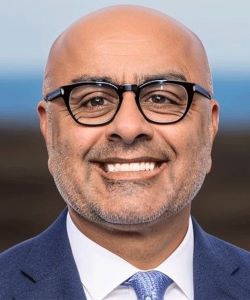
“This program has had a tremendous impact, not just for the organizations who received funding, but for CareQuest Institute team members as well,” says CareQuest Institute Grants & Programs Associate Mari Houlihan. “With more than 90% staff participation, we were able to showcase connections in our own communities and give back to those who need it most.”
Employees could choose any organization; it did not have to be associated with oral health. For many, the decision was easy — they had been personally touched in some way by the nonprofit they selected.
“The [Jewish Community Center of Youngstown’s] generosity in allowing us to pay whatever we could afford so that we had a place to go after school and their complete acceptance and inclusion without reservation (well before inclusion was a “thing”) were instrumental in my developing a sense of belonging and growth in the US,” says CareQuest Institute Chief Dental Officer Kaz Rafia, DDS, MBA, MPH.
In total, Rafia and 83 other employees participated, providing $84,000 total to 84 organizations in 27 states. Below, we offer 10 stories from CareQuest Institute employees that explain the “why” behind the organization they chose:
Sara Ward, Public Relations Manager: Ollie Hinkle Heart Foundation (Webster Groves, Missouri)
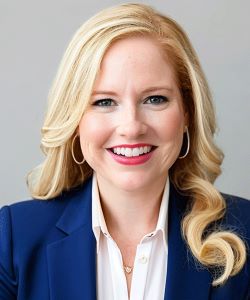
Why she chose it: When I was 24 weeks pregnant with my second daughter, Lily, I heard the seven words that changed my life forever: There’s something wrong with your baby’s heart. After seeing a pediatric cardiologist, we found out that our baby has Tetralogy of Fallot, a congenital heart condition that would require open heart surgery for a newborn to survive. The rest of my pregnancy was filled with fear and anxiety of the unknown.
The Ollie Hinkle Heart Foundation (OHHF) gave me a support system that I desperately needed. They are a local pediatric heart foundation that is focused on the mental health of parents of children with congenital heart disease. They hosted a Heart Mom Support Group that I attended where I met my tribe. These women are truly some of the strongest people I know. It felt so good to be with others that just get it — the fears, the tears, the hospital stays, the celebrations over milestones big and small.
Lily is now five years old and getting ready to start kindergarten. Of course, I will be taking the obligatory school bus photo, and do you know the first people I’m going to send that picture to? My Heart Mom tribe. Giving the community grant to OHHF is just a small token of my appreciation for this wonderful organization that is helping so many families in the area.
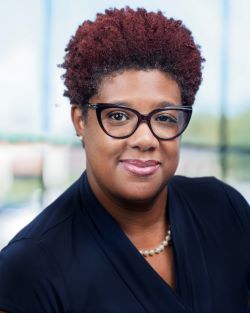
Orletta Cross, People & Culture Director: Jackson Transitional Housing Center (Detroit, Michigan)
Why she chose it: I am humbled to share my connection with Jackson Transitional Housing Center (JTHC), a beacon of hope for women in Metro Detroit who are facing displacement and homelessness. As a survivor of domestic abuse myself, I understand the critical importance of organizations like JTHC in providing comprehensive support to women in their time of need.
At CareQuest Institute, we believe in the power of community and collective action to drive positive change. By selecting JTHC for this grant, I am proud to stand with an organization that embodies compassion, resilience, and hope.
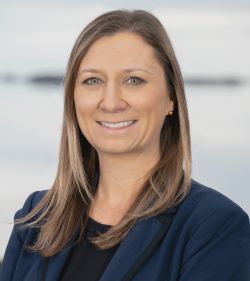
Carly Strang, Director of Corporate Marketing: ALS United Connecticut (Milford, Connecticut)
Why she chose it: In 2018, I lost my mother to amyotrophic lateral sclerosis (ALS), an incurable progressive neurodegenerative disease. ALS United Connecticut was invaluable in providing us with resources and equipment that supported her quality of life, dignity, and desire to receive end-of-life care at home. ALS United CT not only provides services to support patients and caregivers in the form of equipment, transportation, care assist grants, and bereavement support, but also supports advocacy efforts at the state and federal level to accelerate ALS research and access to treatment.
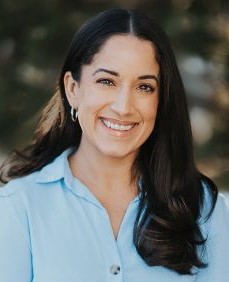
Francesca Gattuso, Content Specialist: KidneyCAN (Philadelphia, Pennsylvania)
Why she chose it: Earlier this year my aunt was unfortunately diagnosed with kidney cancer. This sudden and shocking news has made a huge impact on her day-to-day life, and my family is determined to learn more about the rarity of her diagnosis to better help care and support her through her journey back to optimal health.
Melissa Burroughs, Director of Public Policy: The Marian Cheek Jackson Center (Chapel Hill, North Carolina)
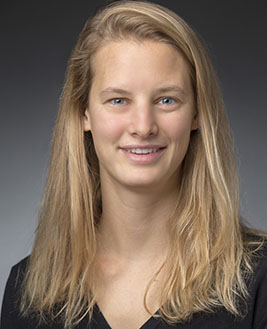
Why she chose it: I have lived in Chapel Hill most of my life, and it is a town full of contradictions: Its politics are progressive, but many practices are exclusionary; the town is built around a university with a history of segregation and racism that is now manifesting into gentrification and racism, but also has a history of providing jobs, economic opportunities, and educational opportunities; we’re in the heart of the South, but much of the white population is made up of northern transplants, while the Black community has been here for generations.
The Marian Cheek Jackson Center (MCJC) is dedicated to preserving the history and the future of historically Black neighborhoods in Chapel Hill. MCJC combines community-first organizing in historically Black neighborhoods with access to resources, while also ensuring that the contradictions and histories of these communities are told, retold, and written into the future. I have long admired and donated to this organization and am grateful to increase my impact through the Community Grants program.

Greg Winn, Vice President of Treasury: Westwood Community Chest (Westwood, Massachusetts)
Why he chose it: My next-door neighbor’s house burned to the ground the week before Thanksgiving. All she had left were the clothes on her back. She spent the first few nights after the fire at my house. The Westwood Community Chest came by our house and asked her what she needed. They picked up clothes for her and gave her a few gift cards to help her get personal items. They brought by food and prepared meals for her as she dealt with insurance companies, town officials, etc. They were incredibly empathetic and helped her to start the process of adjusting and moving on from what was an incredibly traumatic event.
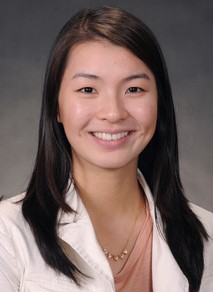
Hannah Cheung, MPH, MS, RDH, Health Sciences Specialist: Triangle Disability & Autism Services (Morrisville, North Carolina)
Why she chose it: Having a family member with an intellectual and developmental disability, I know what a tremendous difference community support has on an individual’s well-being. I’ve seen the amazing work Triangle Disability & Autism Services does to help children and adults with disabilities lead fulfilled, inclusive lives in their communities, and I want to continue to support them in achieving their mission.
Michael Briddon, Education & Content Director: Epilepsy Foundation New England (Lowell, Massachusetts)
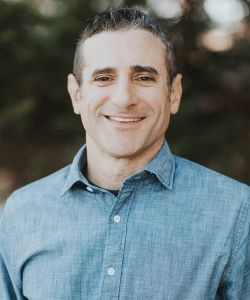
Why he chose it: I was introduced to this organization earlier this year when my sister, Lisa, asked if I would participate in the Boston Walk for Epilepsy.
When she was a toddler, carefree on a playground, Lisa had her first seizure, and the doctors found a tumor. Several surgeries — and an epilepsy diagnosis — followed. Since then, she has been on medication to control her seizures, and many everyday activities that we take for granted are frustrations for Lisa.
Still, she persevered. She was valedictorian of her high school class and graduated from college four years later. She studied long and hard to succeed, to show everyone that her epilepsy wouldn’t define her.
I look up to Lisa, but I also know the tremendous obstacles she and others with epilepsy face. I’m thankful for the opportunity to support her and this wonderful organization that improves the lives of individuals and families impacted by this disease.
Megan Tenpas, Grants & Programs Associate: Opportunity Development Centers, Inc. (Wisconsin Rapids, Wisconsin)
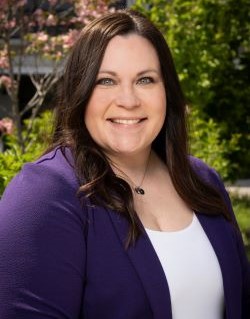
Why she chose it: Opportunity Development Centers (ODC) empowers people with disabilities to achieve their work and life goals, supporting individuals from early years through adulthood.
I have connections with ODC both personally and professionally. Personally, I have participated in their “Run, Walk, ROCK & Roll” fundraiser each year since it started and visited their Milkwood Market storefront to purchase many of their handmade crafts.
Professionally, I was involved in an oral health pilot project called “100 Days, 100 Smiles,” which was part of their life skills learning/training. ODC facilitated conversations around the importance of oral health, from the basics of brushing to overcoming fear of the dentist. This is a phenomenal organization doing great things for those differently abled across central Wisconsin!
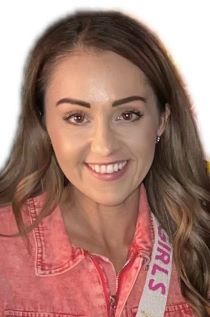
Ashley Pugliares, Executive Assistant: Home Base (Boston, Massachusetts)
Why she chose it: In January of 2023, my husband, who is a marine veteran and local police officer, was involved in a serious on-duty, work-related incident. He was diagnosed with anxiety and post-traumatic stress disorder. At this time, he was referred to the Home Base program in Boston, where they worked with him to heal from the trauma. I cannot thank this program enough for the work they do with veterans, law enforcement, and more. In the end, they saved him.
For more information on CareQuest Institute’s philanthropic work, go to carequest.org/philanthropy.